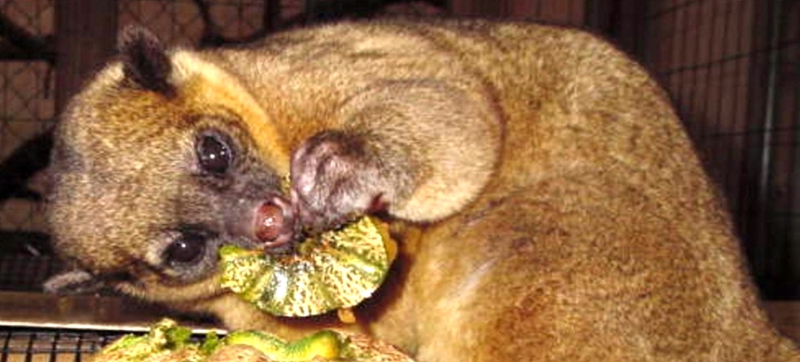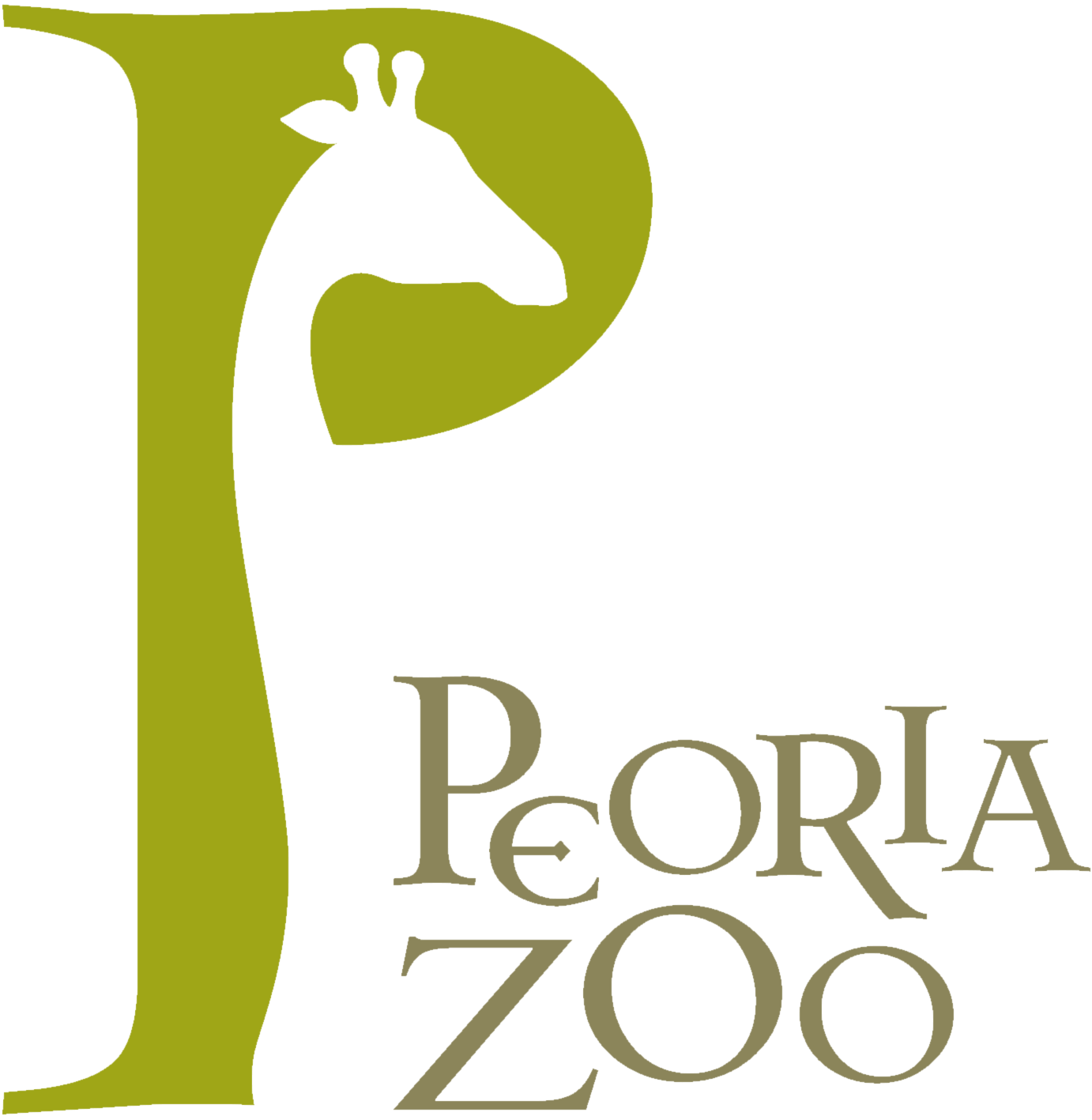Kinkajou - Potos flavus


Habitat:
Rainforests (Mainly arboreal, sleeping in hollows of trees during the day and foraging at night)
Range:
Native to Central and South America
Activity Cycle:
Nocturnal
Features:
The kinkajou's wooly fur consists of an outer coat of gold (or brownish-gray) overlapping a gray undercoat.
Size:
An average adult kinkajou weighs 4–7 lb. Average adult body length is 17-22 inches; in addition to body length, average tail length is 16–22 inches.
Social Structure:
Often solitary, but sometimes form treetop groups and share social interactions such as reciprocal grooming, playing and sleeping. Vocal animals—though seldom seen, they are often heard screeching and barking in the tropical forest canopy.
Diet:
Although the kinkajou is classified in the order Carnivora and has sharp teeth, its omnivorous diet consists mainly of fruit. Kinkajous enjoy bananas, pineapple, nectar, honey, insects, grapes, mangos, melons, peas, and have been known to eat some bird eggs, as well as larger insects and an occasional bird.
Reproduction:
Kinkajous breed throughout the year, giving birth to one or occasionally two small babies after a gestation period of 112 to 118 days.
Status:
Least concern according to the IUCN Red List and is listed on "Appendix III" of CITES. They are also part of an AZA Species Survival Plan.
Interesting Facts:
- Kinkajous are sometimes called honey bears because they raid bees’ nests. They use their long, skinny tongues to slurp honey from a hive, and also to remove insects like termites from their nests.
- Have a 5 inch tongue that allows them to extrude nectar from flowers, which sometimes acts as a pollinator.
- Has a short haired, fully prehensile tail which it uses as a fifth hand in climbing.
- The kinkajou is a member of the Procyonidae genus, which makes it a relative of the raccoon (NOT primates). Also, like the raccoon, the kinkajou has a high level of dexterity.
They are able to turn their feet backwards to run easily in either direction along branches or up and down trunks. - Have known to be kept as pets, however this is NOT recommended. Kinkajous have a painful bite and can be very destructive to a home in the middle of the night, when they are most active.

AZA cooperatively manages this species as a Species Survival Plan® Program.
Prices
- Adult (13 and over)$12.50
- Child (2 - 12)$9.00
- Child (1 and Under)FREE
- Senior (65+)$11.50
- Active Military$11.50
We begin transferring animals to evening (off exhibit) holding at 4:30 each night.
Find Us
2320 N. Prospect Rd.
Peoria, IL 61603
Phone: 309-686-3365
Open Daily 10:00-5:00
Last admission at 4:30
